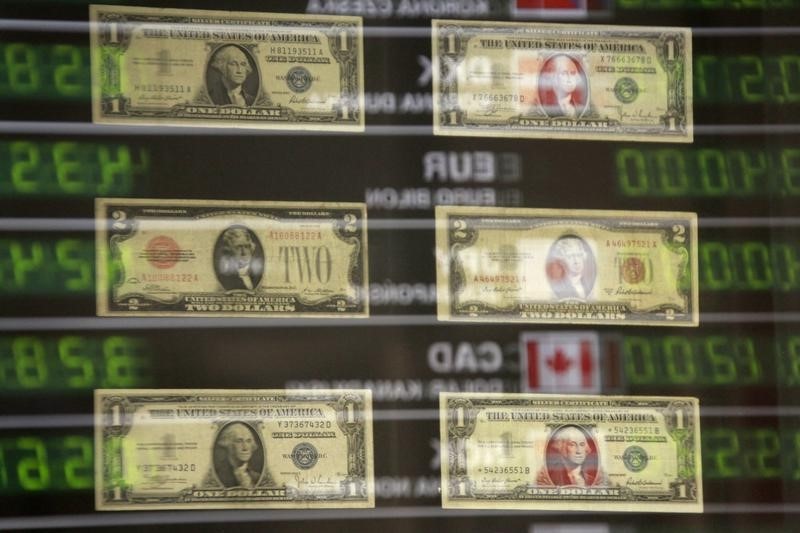(Adds details of trading, closing levels, NBF strategist
comments)
* Canadian dollar at C$1.3104, or 76.31 U.S. cents
* Bond prices higher across the maturity curve
By Solarina Ho
TORONTO, Aug 11 (Reuters) - The Canadian dollar stumbled on
Tuesday, falling almost 1 percent against the greenback, its
biggest one-day loss in nearly a month, as oil prices took a
beating following China's surprise move to devalue its currency.
The yuan had its biggest decline in more than two decades
after the Chinese central bank devalued it by nearly 2 percent
overnight, China's latest attempt to bolster its economy
following a string of poor economic data.
China is one of the world's largest natural resource
consumers, and the move triggered a selloff in dollar-priced
commodities, such as crude, which is a key Canadian export.
"The Canadian dollar, along with other commodity block
currencies ... are getting swept up," said Jack Spitz, managing
director of foreign exchange at National Bank Financial.
"This is the knee-jerk. It's much too early to assess
whether or not this is the beginning of a competitive
devaluation or whether this is a one-off revaluation of the
Chinese yuan."
The Canadian dollar CAD=D4 , which meaningfully broke
through C$1.31 in intraday trading, finished the session at
C$1.3104 to the U.S. dollar, or 76.31 U.S. cents, reversing
Monday's more than 1 percent gain, when the currency officially
closed at C$1.3001, or 76.92 U.S. cents.
It has tumbled more than 20 percent in a little over a year,
and traded between C$1.2996 and C$1.3150 on Tuesday.
A slowdown in China's economy, which is still expected to
grow by around 7 percent this year, has been a key driver for
oil's plunge over the past year along with rising global
supplies. Oil prices CLc1 LCOc1 sank more than 4 percent on
Tuesday. O/R
The move should not derail the Federal Reserve's plan to
tighten monetary policy, said Benjamin Reitzes, senior economist
and foreign exchange strategist at BMO Capital Markets.
"It's a big move from China's perspective, but a 2 percent
move in the currency is not a big one from a global perspective.
You get two percent moves in most floating currencies on a
somewhat regular basis, especially these days," he said.
Canadian government bond prices were higher across the
maturity curve, with the two-year CA2YT=RR price up 7.5
Canadian cents to yield 0.422 percent and the benchmark 10-year
CA10YT=RR rising 73 Canadian cents to yield 1.396 percent.
